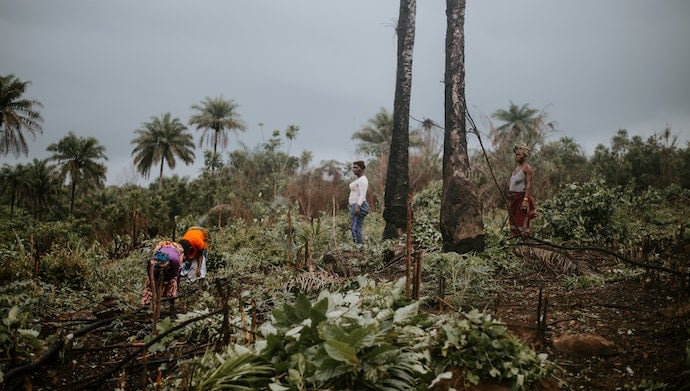
The Founder-on-Founder Podcast series is a weekly podcast hosted by Olivier Raussin, managing partner at FEBE Ventures, an early-stage Venture Capital fund supporting outstanding entrepreneurs in Vietnam and Southeast Asia. The podcast features tech entrepreneurs with a focus on Southeast Asia’s innovation business and tech landscape.
The podcast highlights stories from outstanding entrepreneurs in Southeast Asia on their journey, revealing previously unknown insights and offers advice on running a tech company.
Featured in this episode is Vidush Mahansaria, a technology entrepreneur with several years of experience in the tech and finance industries across the US, Europe and Asia.

“I started working for Grab under Ming, the president of Grab. It was an amazing experience, getting to see the launch of food delivery, mobile payments, the acquisition of Uber and more. After that experience, I decided I needed to spend more time with other best-in-class companies founders around the world to broaden my perspectives.
So I hopped over to the other side and joined ICONIQ Growth, which is a large tech investment fund in San Francisco. After meeting a wide variety of entrepreneurs and understanding their companies, I decided a year ago that it was time for me to make my own leap of faith. Thus, I became a founder and started Vara with one of my best friends from college.”
Also Read: War of warungs: Decoding the race to win the warung game in Indonesia
Vara’s product, Bukugaji, is revolutionising the labour market in Indonesia. The truth is that the vast majority of companies globally employ less than 20 staff. In fact, most of these companies manage their employees and payroll completely manually.
Bukugaji is a powerful and lightweight staff management platform that caters to both small companies as well as their staff. It has also recently been selected as one of the four startups in Southeast Asia to be in the Lightspeed Extreme Entrepreneurs 2021 cohort.
Starting up during the pandemic
After growing up in Thailand and studying and working across the US, Europe and Asia, Vid decided to start up back in his home region of Southeast Asia. The unfortunate circumstance and timing of the pandemic resulted in a 12,000-mile gap between him and his co-founder.
And that hasn’t been the only challenge: “Building for a language that we don’t speak, in a culture that we’re not familiar with, in a geography that we’ve never lived in is hard enough, anyway. Doing that from a distance while not being in the same room has been an undeniably challenging experience. At the same time, however, it’s led to incredible personal discoveries around creating and scaling a product-led company by leveraging global best-in-class talent.”
Discovering an exciting market opportunity
As any former investor would, Mahansaria entered the Indonesian market with “a thesis in mind, a product that we wanted to build, and a problem we wanted to solve.” This initial foray into the startup world was met with challenges when his initial ideas fell flat.
This led to an “entire process of pivoting, trying, building and experimenting with deliberate iteration.” Over time, by “listening to your users and what the market wants” compounded to an exciting market opportunity “for whom we can truly innovate and build around.”
Growth is also important, he said. “It’s important to make sure that the baseline of what you’re building is strong, because you don’t want to be filling up a leaky bucket. As a result, focusing purely on growth is a dangerous game because at some point that growth needs to be sustained. If you’re not retaining your users, for whatever reasons, you will not be able to compound your growth efficiently.”
Mahansaria also goes on to share his experience with fundraising (Vara is backed by Sequoia), team-building, and other interesting insights. “Dive deep with core market insights and establish a strong perspective of what the world should look like. The stronger your determination in the future you want to create, the more likely it is that your narrative with investors will reflect that passion and vision.”
–
Editor’s note: e27 aims to foster thought leadership by publishing contributions from the community. This season we are seeking op-eds, analysis and articles on food tech and sustainability. Share your opinion and earn a byline by submitting a post.
Join our e27 Telegram group, FB community or like the e27 Facebook page
Image credit: Annie Spratt on Unsplash
The post Early-stage learnings from former Grab employee on building a startup to help labour in Indonesia appeared first on e27.

